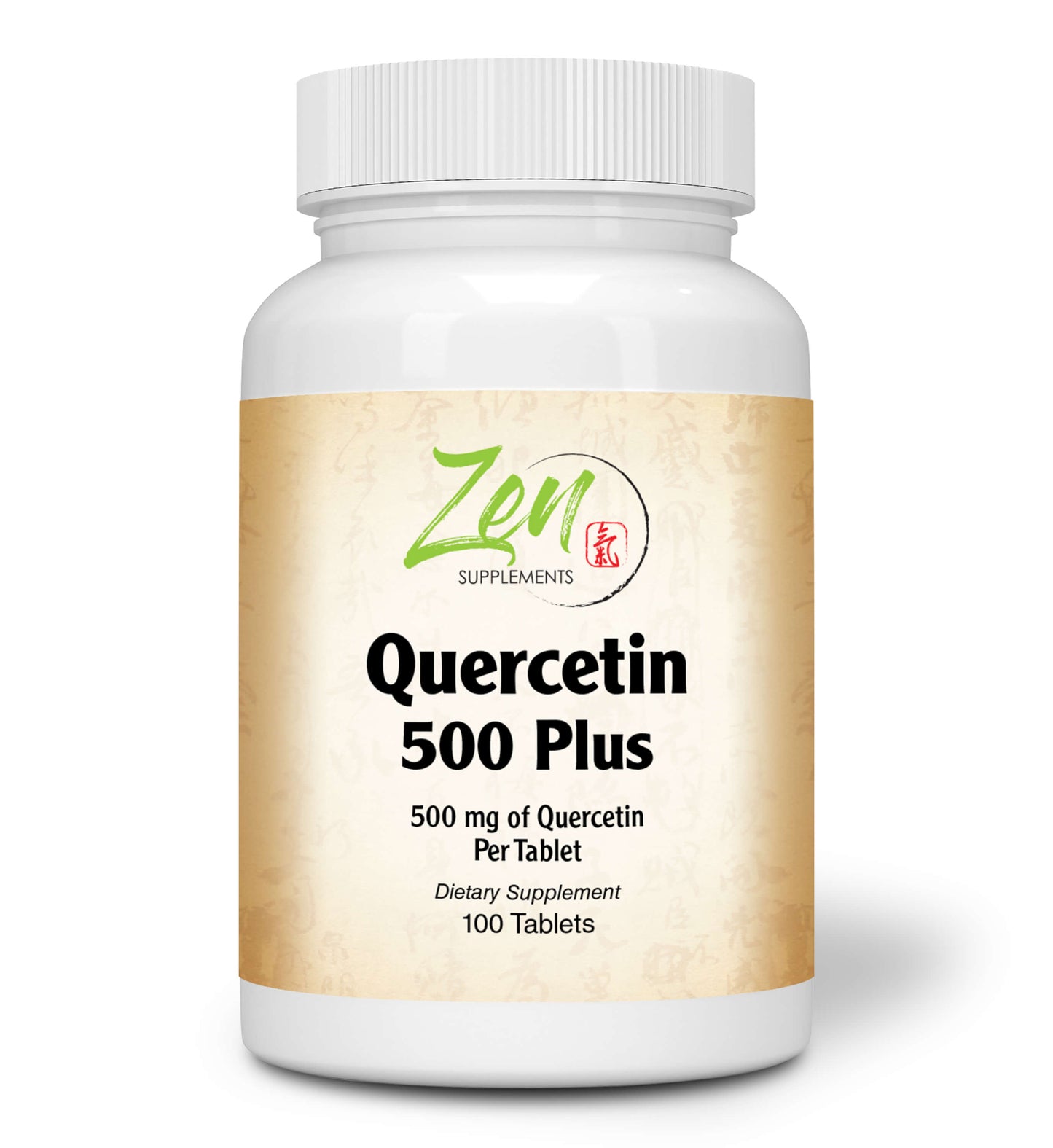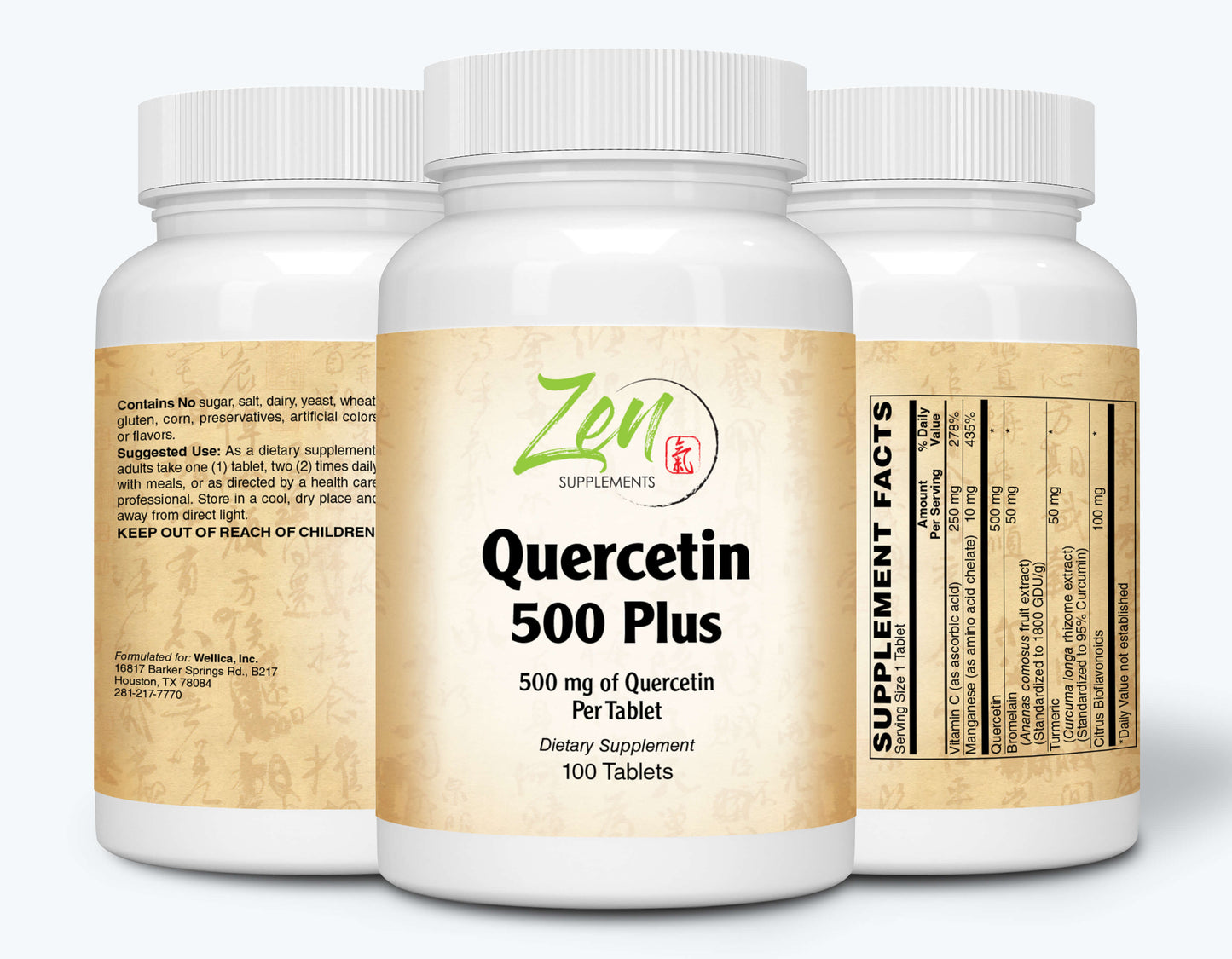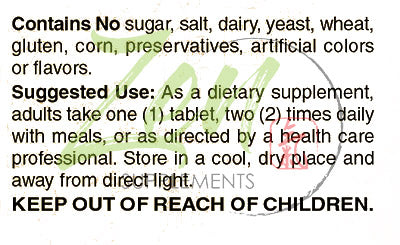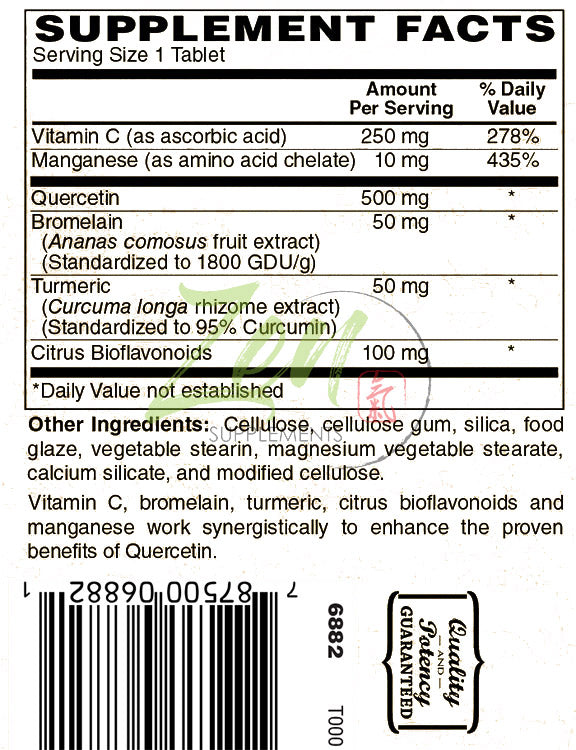Quercetin 500-Plus Antioxidant with Vitamin C, Bromelain & Turmeric - Supports Cardiovascular Health, Helps Improve Anti-Inflammatory & Immune Response 100-Tabs
Quercetin 500-Plus Antioxidant with Vitamin C, Bromelain & Turmeric - Supports Cardiovascular Health, Helps Improve Anti-Inflammatory & Immune Response 100-Tabs
Couldn't load pickup availability
Quercetin is a naturally occurring bioflavonoid that helps support proper immune system function. Quercetin can also help support for the balanced immune system responses to manage seasonal discomfort.
Immune Support:
Contains vitamin C, bromelain, turmeric, citrus bioflavonoids and manganese, which help support a healthy immune system and skin protection
Allergy Support:
Quercetin is a natural anti-histamine that can help alleviate seasonal and food allergies
Anti-Inflammatory Support:
Contains anti-inflammatory properties which can help fight oxidation and prevent cell damage
Other Features
- Contains powerful antioxidant, antihistamine, antimicrobial, and anti-inflammatory properties.
- Also contains vitamin C, bromelain, turmeric, citrus bioflavonoids, and manganese, which work synergistically to enhance the proven benefits of quercetin.
- Has been studied scientifically for over 30 years and is proven to be safe and effective.
- Serves as a basic building block for many other members of the flavonoid family.
- Fights free-radical damage.
Quercetin: A Flavonoid with Super Properties:
Quercetin is an important member of a class of naturally occurring plant pigments known as flavonoids. The distinctive red color of some wines, onions, and apples is due to the presence of quercetin. The latter two are particularly rich sources of the compound, as are black and green teas. It is also interesting that quercetin serves as a basic building block for many other members of the flavonoids family. Along with other antioxidants, quercetin fights the damaging free-radical molecules that are a major cause of aging and degenerative disease in modern Western societies.
Studies on Quercetin Show Much Promise:
Several population studies have linked a high intake of quercetin and other flavonoids to a reduced risk of certain disorders. Research results published in Surgery in 2002 showed that the antioxidant activity of quercetin reduces the buildup of a key component of atherosclerosis. This supports the findings of a large-scale Dutch study of 5,000 adults, which linked a high flavonoid intake with a reduced risk of heart attack. A 2001 study by the prestigious Mayo Clinic found that use of quercetin may be a new breakthrough in the treatment of prostate disorders. A report published in December 2004 showed that quercetin is also effective in treating chronic prostatitis. While numerous studies have been done, more studies are necessary to establish specific health benefits. Quercetin has been studied scientifically for over 30 years. During that time it has proven to be not only a highly effective natural supplement but also a safe one.
FDA Disclaimer: Statements regarding dietary supplements have not been evaluated by the FDA and are not intended to diagnose, treat, cure, or prevent any disease or health condition.
Share











